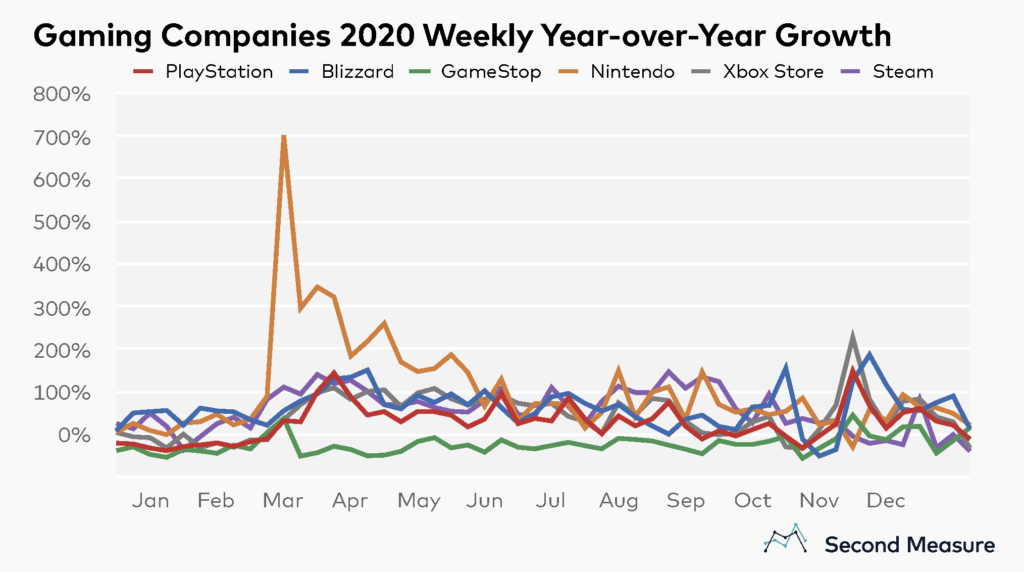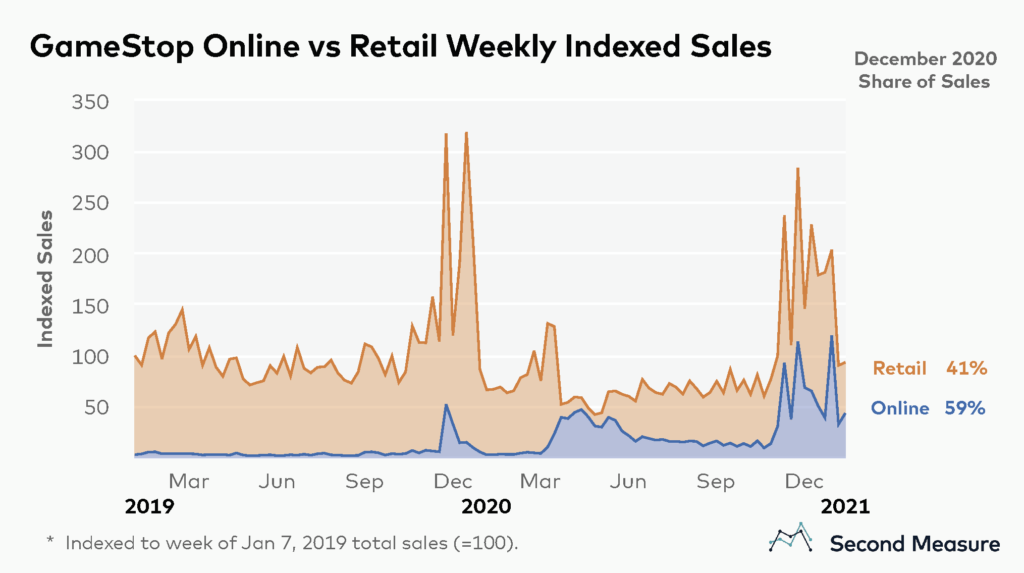NOTE: Bloomberg Second Measure launched a new and exclusive transaction dataset in July 2022. Our data continues to be broadly representative of U.S. consumers. As a result of this panel change, however, we recommend using only the latest posts in assessing metrics, and do not support referring to historical blog posts to infer period-over-period comparisons.
While GameStop (NYSE: GME) has been in the news due to the recent Reddit-fueled buzz, trading activity, and stock volatility, transaction data reveals that its sales have decreased over the last two years—exacerbated by COVID-19 as well as the increase in gaming publishers’ and console manufacturers’ direct-to-consumer offerings.

Over the last 12 months, GameStop’s average weekly year-over-year sales growth stood at -23 percent. By contrast, gaming companies have observed relatively consistent positive year-over-year growth.
Though these companies employ a slightly different business model from that of GameStop—in that the bulk of their sales exclude revenue from collectibles, merchandise, and apparel—their ability to attract and retain customers by offering consumers the ability to download games and add-ons directly from their web stores has resulted in an increase in sales in recent years. Most notably, Nintendo stands out from its peers. The company saw a big spike in growth at the start of the coronavirus shelter-in-place orders, likely due to the skyrocketing popularity of its Switch consoles being paired with hit games like Animal Crossing. In the week of March 16, the company witnessed year-over-year growth of 700 percent. Weekly year-over-growth since then has averaged 105 percent.
COVID-19 drives shift to online channel
March 2020 marked a significant shift in sales by channels for GameStop. Where most of its sales had typically been through its vast nationwide network of retail stores, the introduction of shelter-in-place orders pushed online sales to record levels.

Between mid-March and June of 2020, GameStop’s online sales accounted for an average of 53 percent of total sales, up from an average of 3 percent the same months in the year prior. Online sales dwindled slightly as states began re-opening, but continue to constitute a significant proportion of sales. Average online share of sales for GameStop in 2020 stood at 30 percent, compared to 5 percent in 2019.
